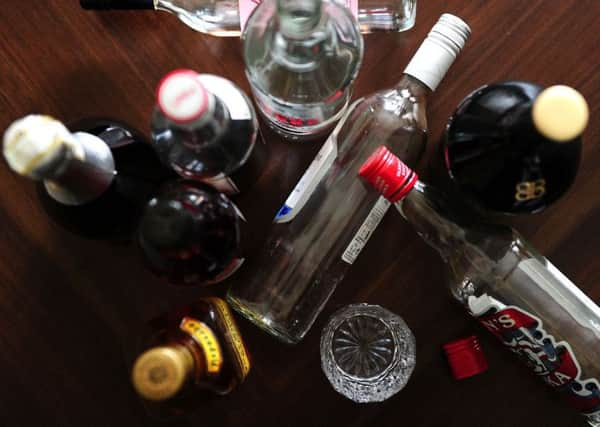Kevan Christie: It can cause sickness and death, but we love it


As the findings of an NHS Scotland study showed alcohol was a factor in more than 3,700 deaths in a single year and experts warned drink has a “wider impact” on health than many people think, there was no sign that the saturation advertising of the product was going to end anytime soon.
The marketing plays on the idea that certain drinks, gin, for instance, are compatible with a more discerning palette and are a world away from the cheap cider and ‘cooking’ lager beloved of the booze-sodden proles.
Advertisement
Hide AdAdvertisement
Hide AdGin in particular is sold using ideas relating to heritage, sport and class. All you need to do, it seems, is stick your finger in a map of Scotland, call your product after the first place it lands on – then throw in a few of extra ingredients including raspberry and you’re laughing all the way to the (hipster) bar.
What was once called ‘mother’s ruin’ is now incredibly popular, so popular that one marketing genius has come up with the idea of flogging gin miniatures along with chocolate eggs just in time for Easter.
Unfortunately the real experts on alcohol know that all drink products contain ethanol and it’s this chemical compound that does the damage to health.
I would argue that the more deluded among us, who believe that sticking to the allowed number of weekly units means they can have six large gins while watching the rugby this weekend, need to wake up to fact that increasing evidence shows there are no “safe” limits.
The World Health Organisation defines chronic heavy drinking as around two-and-a-half glasses of wine a day for women or four pints of beer a day for men – very doable if you put the effort in.
Of course, there are those of us who have all the information on alcohol to hand and fully understand the damage is in the post but, to quote the Beautiful South, carry on regardless.
These poor souls make up a sizeable chunk of the Scottish drinking population and won’t change until a life-changing event, probably related to health, happens. They take solace that their best mate drinks more than them and thrive on tales of other people’s drunkeness.
Researchers who poured through the records of more than a million hospital patients in France found that 57 per cent of those diagnosed with dementia before the age of 65 also had a medical disorder caused by chronic alcohol abuse, like alcoholic liver disease or Wernicke-Korsakoff syndrome, a vitamin deficiency linked to heavy drinking.
Advertisement
Hide AdAdvertisement
Hide AdOverall, men and women with such a condition were 3.3 times more likely to develop dementia during their lifetime than those without.
The scary thing about this latest development is that, with an ageing population, more of us are likely to suffer some form of dementia.
The fact that those days lost to hangovers are contributing to this should act as a wake-up call. The time for society in general to make a decision is edging closer.
As we are repeatedly shocked by one alcohol-related health nightmare after another, it will become harder and harder to swallow the latest promotion of drink brand, often wrapped up in a sporting event.